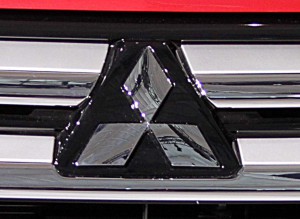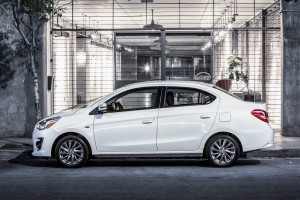Mitsubishi Motors Corp. today admitted it has been falsifying fuel economy data since 1991, the embattled Japanese automaker’s president adding that an ongoing internal probe could uncover additional cheating.
The investigation was launched earlier this month when inconsistent test data was reported by Nissan Motor Co., which partners with Mitsubishi to produce the Dayz Roox, a microcar sold in Japan. A number of other vehicles sold in Japan have since been implicated.
“We don’t know the whole picture and we are in the process of trying to determine that,” Mitsubishi President Tetsuro Aikawa said during a news conference in Tokyo on Tuesday.
(For more on how the Mitsubishi mileage scandal broke, Click Here.)
It’s the latest in an ongoing series of problems for Japan’s sixth-largest automaker. Mitsubishi survived a near-fatal financial crisis earlier in the decade only with the help of several of Japan’s largest banks. It had previously been caught covering up defects involving faulty brakes and other vehicle components.

The scandal was triggered when Nissan asked Mitsubishi about mileage data for vehicles it produces for the bigger Japanese maker, such as this Nissan Dayz Roox.
The new scandal has led investors to once again flee, the carmaker losing half of its market value in barely a week. But the new internal probe could mark just the start, rather than the end of the latest saga.
Japanese authorities have already raided one of Mitsubishi’s test facilities, the transport ministry today announcing it has set up a task force charged with looking at how all of the Japanese automakers have been handling fuel economy tests. Other manufacturers have been told to provide their own mileage data to the ministry by May 18th.
All told the initially revelations involved about 468,000 vehicles sold under the Nissan and Mitsubishi names, all marketed in Japan in the so-called Kei car segment where fuel economy is a key competitive advantage.
During the Tuesday morning news conference, Mitsubishi released several diagrams showing how the tests were rigged.
To boost its numbers, Mitsubishi engineers apparently relied on data compiled by running the affected vehicles through American fuel economy tests. Those procedures involve extensive highway simulations, reflecting the fact that U.S. motorists drive longer distances, and at higher speeds, than their Japanese counterparts. The stop-and-go driving in cities like Tokyo typically reduces fuel economy.
(Carmakers beating U.S. mileage requirements, finds new study. Click Here for more.)
The automaker has set up a panel of three lawyers, one a former government prosecutor, to continue the investigation. They are expected to report back in three months.
Mitsubishi is expected to offer compensation to buyers affected by the fuel economy scandal, though the details will likely have to wait until results of the investigation are completed and it becomes apparent whether other models were impacted. Considering the subterfuge was begun a quarter century ago, that is considered highly likely.
How much the scandal will impact Mitsubishi remains to be seen, though the maker hasn’t completely overcome the damage done by the revelation it hid reports of vehicle component failures. At least one person was killed as a result.
The cheating delivers more than just a black eye to the Japanese maker, however. It comes amidst a variety of other scandals involving automakers around the world. That includes the ongoing probe of Volkswagen’s diesel emissions cheating, Honda’s underreporting of crash information and General Motors’ ignition switch defect, the latter ultimately linked to more than 120 deaths.
In recent years, several other automakers have had to revise fuel economy numbers in the U.S., meanwhile, including Ford, Hyundai and Kia.
(VW takes $18.2 bil hit for diesel scandal. But cost likely to rise. Click Here for the latest.)



How much you want to bet that no one from Mitsubishi goes to jail over this? If you’re a rich corporation then it’s ok to commit fraud. The corporation gets hit with a fine that the customers end up paying while the guilty people in the firm get off scott free. Just look at the Wall Street bankers that crashed our economy.
Mitsu could pull up stakes and leave the U.S. and no one would notice.
Nothing the bankers did was technically illegal. The Left has managed to make capitalism (the thing that’s made automobiles affordable and even possible), out to be a terrible thing. However, that said, we in the U.S. do seem to have a problem punishing people responsible for disasters in government, and corporate governance isn’t exactly where it should be either.
As for Mitsubishi, seeing as how it is a Japanese company, and not a U.S. one, I will bet you that there will indeed be some executive ‘reassignment’.